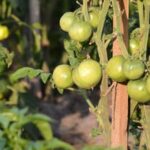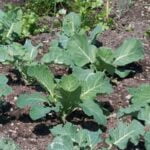What is the best soil for container vegetable gardening? Container gardening has gained popularity in recent years due to its versatility and flexibility, allowing people to grow vegetables even in small spaces. Using the right soil is crucial for the success of container vegetable gardening, as it directly impacts the growth and health of the plants.
Container vegetable gardening offers several benefits, including the ability to control soil quality, reduced risk of pests and diseases, and easier maintenance. In this article, we will explore the importance of using the best soil for container vegetable gardening and provide valuable insights into selecting and maintaining the ideal soil for your container garden.
The type of soil used for container vegetable gardening can make a significant difference in the overall health and productivity of your plants. Understanding the qualities of the best soil and how to maintain its fertility throughout the growing season is essential for successful container gardening. Join us as we delve into this topic to help you achieve a thriving container vegetable garden.
Benefits of Using the Right Soil
When it comes to container vegetable gardening, the type of soil used can have a significant impact on the overall success of the garden. The right soil not only provides necessary nutrients for plant growth but also ensures proper drainage and aeration, which are essential for healthy root development. Here are some key benefits of using the right soil for container vegetable gardening:
- Nutrient-Rich Soil: High-quality soil provides essential nutrients such as nitrogen, phosphorus, and potassium that are vital for the growth and fruiting of vegetables.
- Proper Drainage: Well-draining soil prevents waterlogging, which can lead to root rot and other issues. It allows excess water to flow through the pot, preventing water buildup at the roots.
- Healthy Root Development: The right soil promotes strong and healthy root development, leading to robust plants that are better able to withstand environmental stressors.
In addition to these benefits, using the right soil also helps create an environment that is conducive to beneficial microbial activity in the root zone of container vegetables. This microbial activity aids in nutrient uptake and overall plant health. Therefore, choosing the appropriate soil mix is crucial for successful container vegetable gardening.
Lastly, using the right soil can also help minimize common issues such as nutrient deficiencies, compacted soil, and poor drainage, ultimately leading to better yields and healthier plants in a container garden setup.
Qualities of the Best Soil
When it comes to container vegetable gardening, the soil you use is crucial to the success of your plants. The best soil for container gardening should possess specific qualities that will promote healthy growth and bountiful harvests. Understanding the characteristics of the ideal soil will help you make informed decisions when choosing or creating a soil mix for your garden.
Well-Draining
One of the most important qualities of the best soil for container gardening is its ability to drain well. Excess water can lead to root rot and other problems, so it’s essential for the soil to allow proper drainage. Look for a soil mix with perlite or vermiculite, which helps improve drainage and aeration.
Moisture Retention
While good drainage is important, the ideal soil should also have the ability to retain moisture. This is especially crucial in container gardening where the soil can dry out quickly. A good potting mix will contain organic materials such as peat moss or coconut coir, which help retain moisture while still allowing excess water to drain away.
Nutrient-Rich
The best soil for container vegetable gardening should be rich in nutrients to support plant growth. Look for a potting mix that contains organic matter like compost, as well as essential nutrients such as nitrogen, phosphorus, and potassium. It’s also beneficial to supplement with a slow-release fertilizer to ensure your plants have access to all the nutrients they need throughout the growing season.
Types of Soil for Container Gardening
When it comes to container gardening, choosing the right type of soil is crucial for the success of your vegetable plants. There are several different options available for container gardening soil, each with its own unique characteristics and benefits. In this section, we will compare and contrast different types of soil including potting mix, peat moss, compost, and more to help you make an informed decision.
Potting Mix
Potting mix is a popular choice for container gardening as it is specifically formulated for use in containers. It is typically a combination of materials such as peat moss, perlite, vermiculite, and sometimes added fertilizer. Potting mix is lightweight, well-draining, and provides good aeration for plant roots. However, it may not provide all the necessary nutrients for your vegetables and may require additional fertilization.
Peat Moss
Peat moss is a natural organic material that helps retain moisture in the soil while still providing good drainage. It is acidic in nature, so it may not be suitable for all types of vegetables. Peat moss can be mixed with other soil amendments to create a balanced growing medium for container gardening.
Compost
Compost is rich in organic matter and nutrients, making it an excellent choice for container gardening soil. It improves soil structure, provides essential nutrients to plants, and enhances moisture retention. However, using only compost as container gardening soil may lead to drainage issues due to its high organic content.
By understanding the qualities of different types of soil for container gardening, you can make an informed decision about which option will best suit your needs. Whether you choose potting mix, peat moss, compost or another type of soil amendment, ensuring that it provides good drainage, adequate nutrients, and proper moisture retention will set the stage for healthy and productive vegetable plants in your containers.
Making Your Own Soil Mix
When it comes to container vegetable gardening, the type of soil used plays a crucial role in the growth and health of your plants. Creating your own customized soil mix can provide the ideal environment for your vegetables to thrive. Here are some tips and guidelines for making your own soil mix for container gardening:
1. Choose the right components: When creating your soil mix, it’s important to choose the right components that will provide nutrients, aeration, and good drainage for your plants. Consider using a combination of ingredients such as peat moss, perlite or vermiculite, compost, and organic fertilizer.
2. Use a balanced ratio: The key to creating a successful soil mix is to find the perfect balance of ingredients. Aim for a ratio of 1:1:1 for peat moss, perlite or vermiculite, and compost. This will ensure that your soil provides adequate moisture retention, proper drainage, and essential nutrients for your plants.
3. Add organic matter: Incorporating organic matter into your soil mix is essential for promoting healthy root development and nutrient absorption in container vegetables. Consider adding well-aged compost or other organic materials to enrich the fertility of the soil.
Creating your own customized soil mix for container gardening allows you to tailor the composition according to the specific needs of your plants while ensuring optimal growing conditions throughout the season. By following these tips and guidelines, you can create a soil mix that provides the best possible environment for your container vegetables to thrive.
Purchasing Soil for Container Gardening
When it comes to container gardening, the type of soil used can make a significant impact on the success and health of your vegetables. There are a variety of options available for purchasing premade soil mix, and it’s important to know what to look for when shopping. The right soil will provide essential nutrients, proper aeration, and good drainage for your plants.
One option for purchasing soil for container gardening is to visit your local garden center or nursery. Here you can find a selection of premade soil mixes specifically designed for container gardening. These mixes are formulated to provide the ideal growing conditions for vegetables in containers. Look for mixes that contain a balanced combination of organic matter, perlite or vermiculite for drainage, and added nutrients such as compost or fertilizer.
Another option for purchasing soil is online retailers. Many garden centers and companies offer premade soil mixes that can be ordered and delivered directly to your home.
This can be a convenient option, especially if you’re looking for specialty mixes or need a larger quantity than what is available at local stores. When shopping online, pay attention to customer reviews and product descriptions to ensure that you are purchasing a high-quality mix that meets the specific needs of container vegetable gardening.
In addition to considering where to purchase premade soil mix, it’s important to pay attention to certain factors when shopping. Look for mixes that are labeled specifically for container gardening or vegetables. Check the ingredients list to ensure that the soil contains organic matter such as compost or peat moss, as well as materials like perlite or vermiculite for proper drainage. Avoid soils with added chemical fertilizers or pesticides if you prefer an organic approach to gardening.
| Premade Soil Mix Option | Key Features |
|---|---|
| Local Garden Center/Nursery | Convenient access, Balanced combination of organic matter and drainage materials |
| Online Retailers | Wide variety, Specialty mixes available, Convenient delivery |
Maintaining Soil Health
One of the most crucial aspects of successful container vegetable gardening is maintaining the health and fertility of the soil throughout the growing season. The quality of the soil directly impacts the growth, yield, and overall health of the vegetables. To ensure that your container garden thrives, it is essential to implement effective maintenance techniques.
Regular watering is key to maintaining soil health in container gardening. Container soils tend to dry out faster than traditional garden beds, so it’s important to monitor moisture levels and water as needed. Additionally, using a layer of organic mulch on top of the soil can aid in retaining moisture and preventing rapid evaporation. Mulch also helps regulate soil temperature and suppress weed growth, further contributing to soil health.
Another important aspect of maintaining soil health in container gardening is fertilization. The limited space in containers means that plants rely solely on the nutrients present in the soil. To ensure proper nutrition, consider using a balanced, slow-release fertilizer specially formulated for container vegetables. Regularly fertilizing your container garden according to package instructions will help replenish essential nutrients and maintain soil fertility throughout the growing season.
Proper drainage is another critical factor in maintaining healthy soil for container vegetable gardening. Inadequate drainage can lead to waterlogged soil, which can suffocate plant roots and promote disease. When selecting or creating a soil mix for your containers, be sure to incorporate ingredients that promote good drainage such as perlite or coarse sand.
| Maintenance Technique | Impact on Soil Health |
|---|---|
| Regular Watering | Prevents dehydration and aids with nutrient absorption |
| Fertilization | Replenishes essential nutrients for plant growth |
| Proper Drainage | Prevents waterlogging and promotes healthy root development |
Conclusion
In conclusion, the soil used for container vegetable gardening plays a crucial role in the success of your harvest. As discussed throughout this article, the right soil can greatly impact the growth and health of your plants, as well as their productivity.
The qualities of the best soil, including good drainage, moisture retention, and aeration, are essential for providing a healthy environment for your vegetables to thrive. Additionally, the different types of soil options such as potting mix, peat moss, compost, and more each have their own unique benefits and considerations to take into account when choosing the best option for your container gardening.
Furthermore, creating your own soil mix provides an opportunity to tailor the components to meet the specific needs of your container garden. Alternatively, purchasing premade soil mix also offers convenience with various options available on the market. However, regardless of whether you choose to make your own soil mix or purchase one, it is important to prioritize quality and ensure that it meets the necessary criteria for successful vegetable container gardening.
In order to maintain soil health throughout the growing season, implementing proper maintenance techniques is crucial. This includes regular watering and fertilizing as well as monitoring for any signs of nutrient deficiencies or plant stress.
By consistently attending to your soil’s needs and making adjustments as necessary, you can help ensure that your container vegetable garden continues to flourish. In summary, using the best soil for successful container vegetable gardening is vital in achieving a bountiful harvest and is an essential factor in encouraging readers to take action towards creating their own thriving container garden.
Frequently Asked Questions
What Is the Best Soil Mix for Container Vegetables?
The best soil mix for container vegetables should be well-draining and nutrient-rich, to support healthy plant growth in a confined space. A good mix usually includes a combination of garden soil, compost, perlite or vermiculite for drainage, and organic matter such as coconut coir to retain moisture.
It’s important to strike the right balance to ensure that the plants have access to essential nutrients while also having proper aeration and drainage.
What Kind of Soil Do You Use for a Vegetable Garden?
For a vegetable garden, it’s important to use rich, loamy soil that is well-draining and has good texture. This type of soil allows for healthy root development and promotes optimal water retention without becoming waterlogged.
Adding organic matter like compost or well-rotted manure will also help enrich the soil with essential nutrients needed for vegetable plants to thrive.
What Is the Difference Between Potting Soil and Container Soil?
Potting soil and container soil are often used interchangeably, but there are some differences between the two. Potting soil is designed to provide a good growing environment for potted plants, with a blend of peat moss, perlite or vermiculite, and other organic materials.
Container soil may have a similar composition but is specifically formulated for use in containers like raised beds or large planters rather than individual pots. Both are designed to provide proper drainage and nutrients for container gardening, but container soils may be formulated for larger containers and different growing conditions compared to standard potting soils.

If you’re looking to get into vegetable gardening, or are just looking for some tips on how to make your current garden better, then you’ve come to the right place! My name is Ethel and I have been gardening for years. In this blog, I’m going to share with you some of my best tips on how to create a successful vegetable garden.





